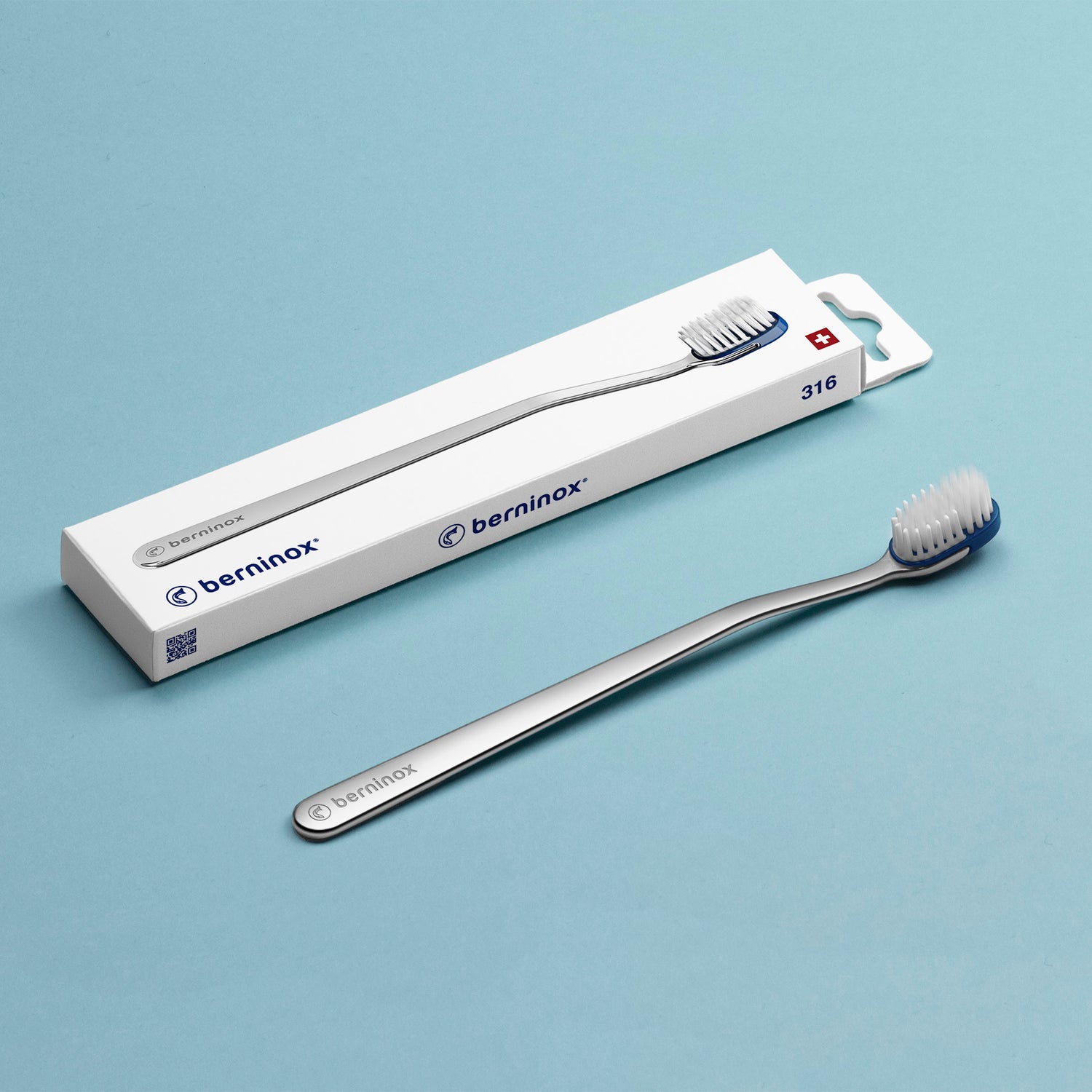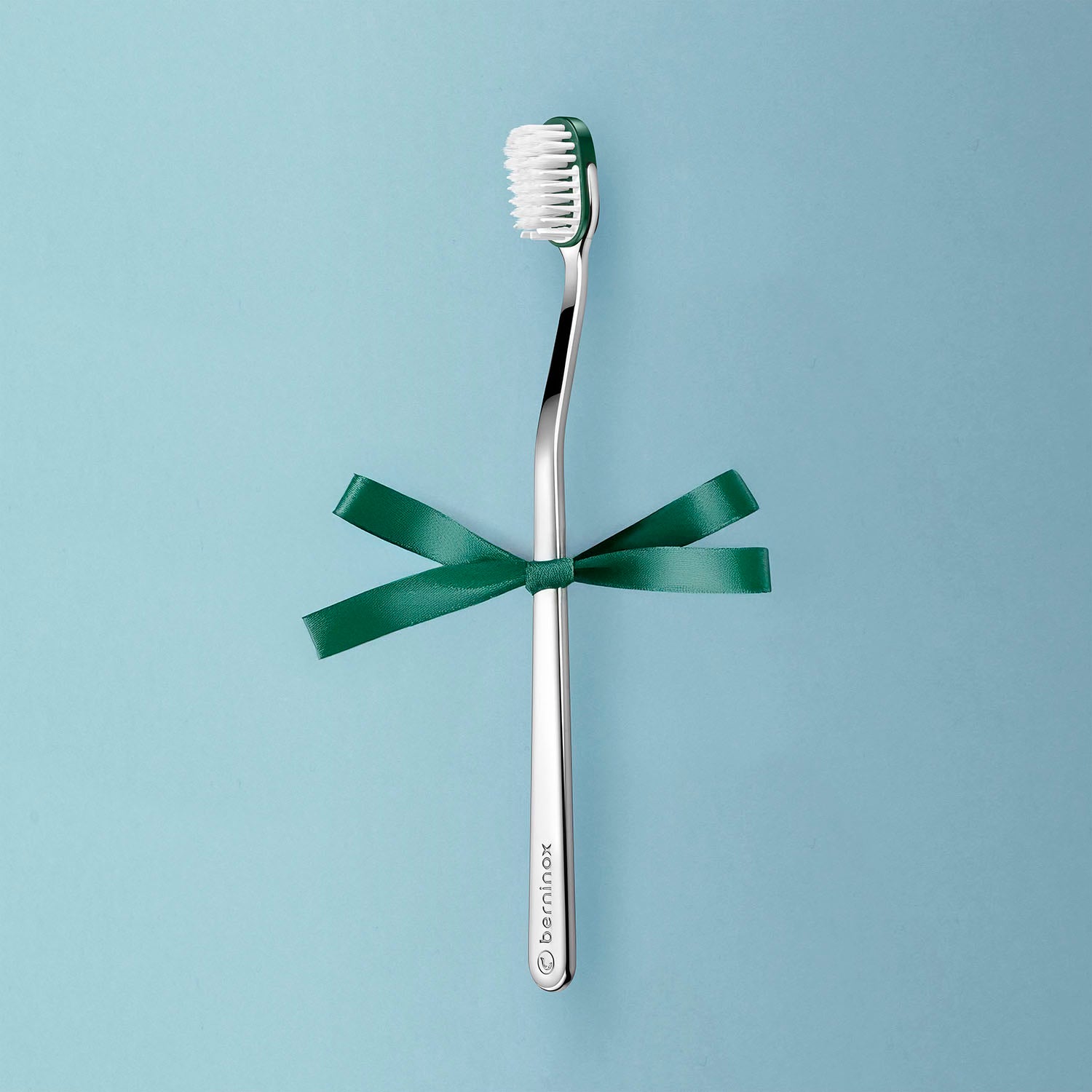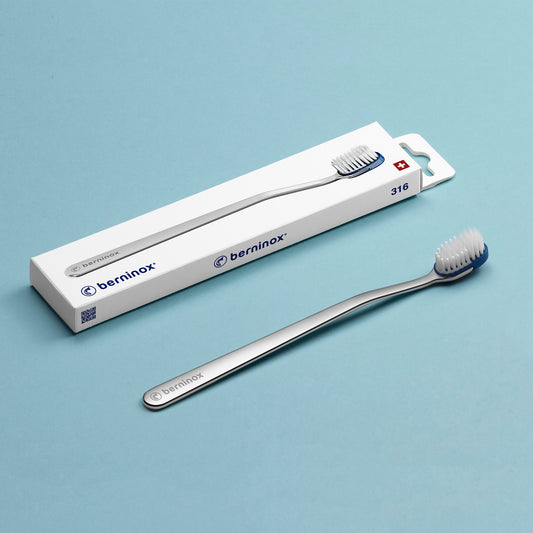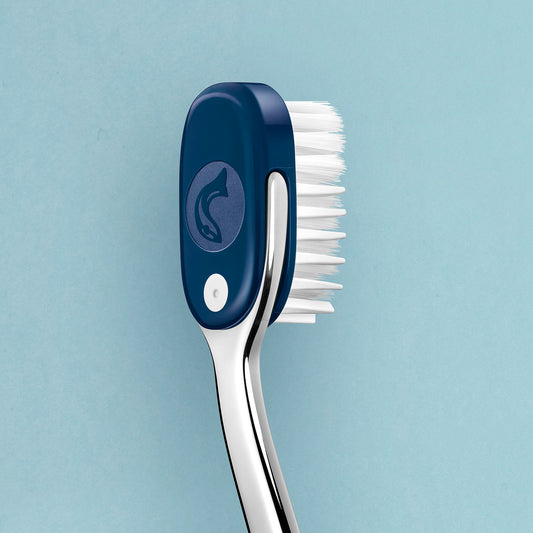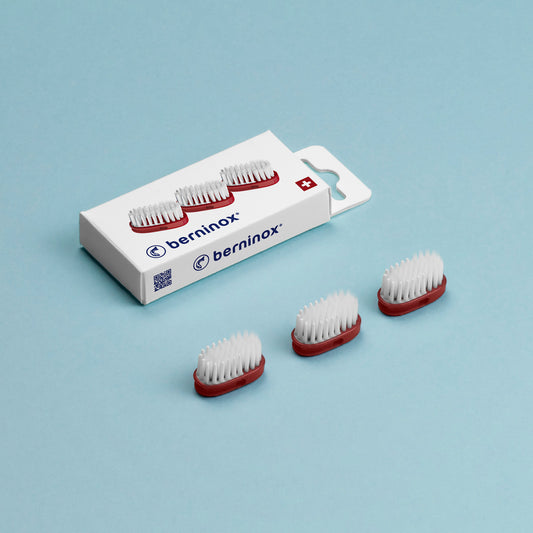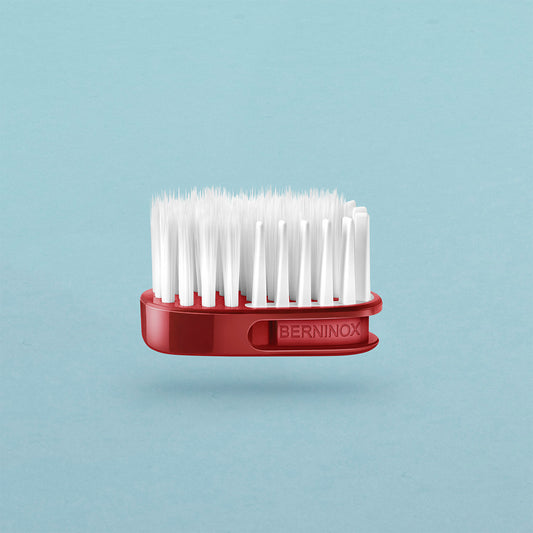
Taking care of teeth and gums during pregnancy
During pregnancy, the body undergoes many hormonal changes, and the mouth is no exception. Many pregnant women notice sensitive, red, swollen gums that bleed easily, especially when brushing. Although common, this phenomenon should not be ignored.
To better understand and share good practices, we asked Déborah Pott, an independent dental hygienist in Biel and mother, who regularly supports pregnant patients in their oral hygiene, for advice.
Why do gums bleed more during pregnancy?
The increase in estrogen and progesterone levels changes the body’s response to the bacteria present in dental plaque. As a result, gums become more vulnerable to inflammation, leading to what is called pregnancy gingivitis. It usually appears between the 2nd and 8th month.
In most cases, this condition is temporary. However, if left untreated, it can progress and affect the supporting tissues of the teeth, with more serious consequences for oral health. Pregnancy gingivitis rarely occurs in isolation; it tends to worsen pre-existing inflammation.
Factors that may influence oral health during pregnancy
Certain changes during pregnancy can make maintaining good oral hygiene more challenging:
- Nausea and vomiting may make brushing difficult or unpleasant.
- Fatigue may lead to shortened or skipped brushing sessions.
- Dietary advice related to nausea (small, frequent meals) often increases snacking.
Tips to limit the impact:
- Avoid sticky, soft, sugary snacks whenever possible.
- Drink sugary beverages preferably during meals rather than throughout the day.
Vomiting can also cause enamel erosion due to stomach acids. This is why regular fluoride intake is particularly recommended during this period.
Precautions to take during pregnancy
- Brush your teeth 3 times a day, preferably after meals, with a soft toothbrush.
- Use dental floss or interdental brushes.
- A mild mouthwash (antiseptic or herbal) can help soothe sensitive gums.
- Choose a fluoride toothpaste that is gentle and non-abrasive.
Déborah Pott recommends the Berninox Super Soft toothbrush, equipped with ultra-soft bristles that protect fragile gums. Unlike conventional plastic toothbrushes, the Berninox toothbrush (handle and head) is fully washable: it is dishwasher safe and can be sterilized with steam. This innovation contributes to better oral hygiene, which is especially important during pregnancy.
Regular check-ups with your dental hygienist or dentist
A check-up is ideally recommended before pregnancy to complete any necessary treatments, X-rays, and cleanings.
During pregnancy, professional cleaning is possible and even recommended in cases of gum inflammation. The ideal time is between the 4th and 7th month.
It is also important to emphasize that urgent treatments (such as painful cavities or infections) should not be delayed, as an untreated infection poses a greater risk to the mother and baby than the treatment itself.
